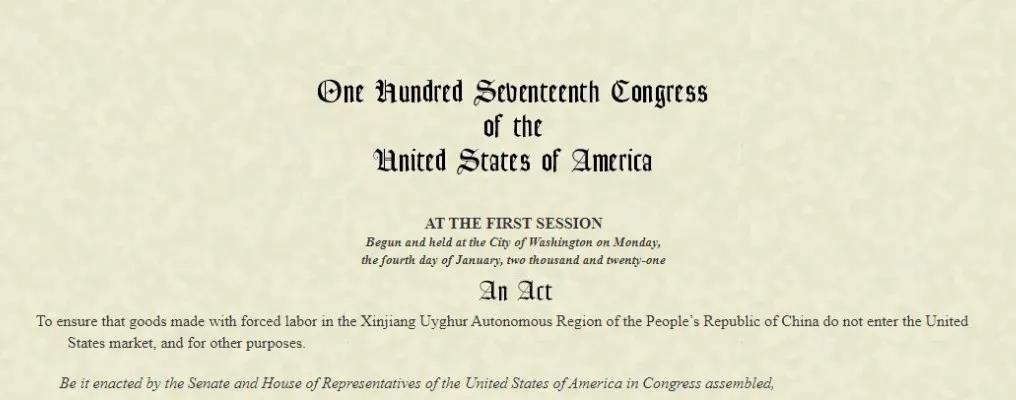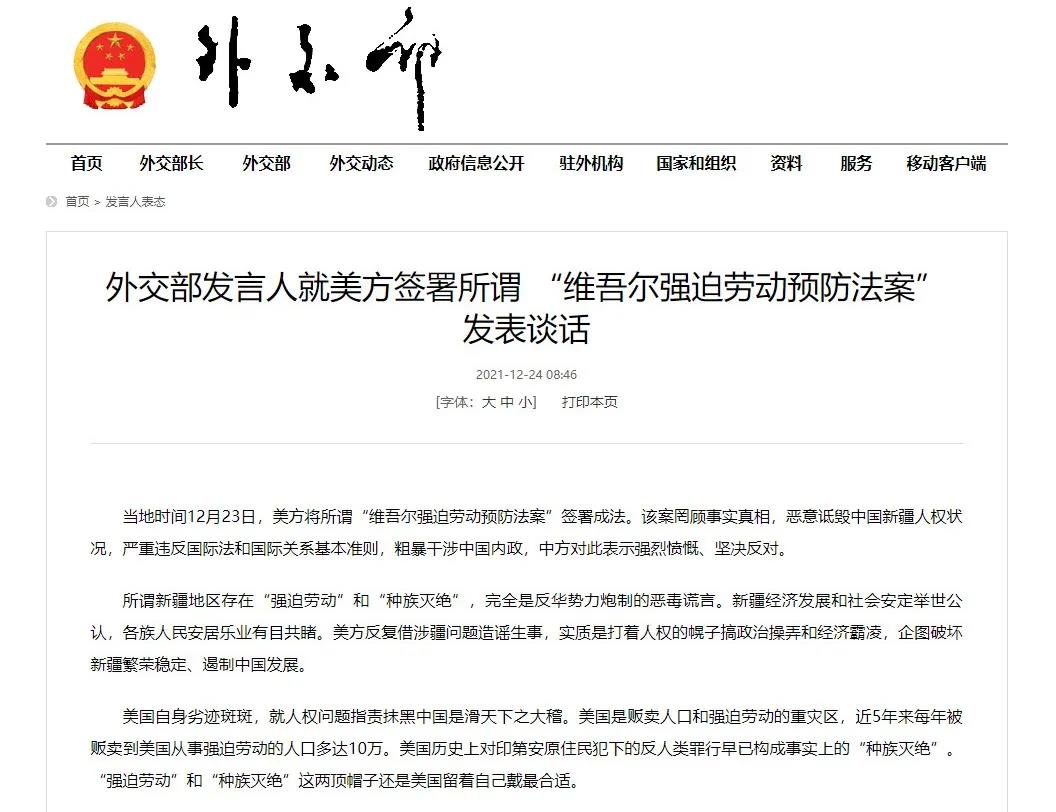The
United States formally signed a ban on the import of Xinjiang products,
and the export of Xinjiang cotton products worth more than 9 billion US
dollars will be affected. For more information on export to China, please call SINOLOBEN, service Email: sinoloben@sloben.com.
On
December 23, local time in the United States, President Biden formally
signed the so-called Uygur forced Labor Prevention Act, which means that
the bill has been formally enacted. The
so-called "forced labor" means that the US Government interferes in
China's internal affairs under the pretext of the Xinjiang issue. This
lie-based move shows that the United States will continue to crack down
on China by adjusting its strategy even if it changes the president. The
Uygur forced Labor Prevention Act, if implemented, means that cotton
products worth more than $9 billion in Xinjiang will be seriously
affected in 2022. At the same time, the
president of the US Textile Commission said that because of China's
dominant position in global textile and clothing production, the US
textile industry has long been a victim of China's export behavior. and
pointed out that it is necessary to develop and fully implement a
maximum pressure plan to reconfigure the textile and clothing
procurement model. China's textile and
clothing industry is one of the few industries in China that has a
dominant position in the world. The United States intends to reconfigure
the global textile industry. The hollowing out of the United States and
the high unemployment rate are chronic diseases that are difficult to
cure. The US government is likely to create jobs for Americans through
the return of the textile and clothing industry.
Biden formally signed the bill banning the import of Xinjiang products.
Us
President Joe Biden signed the so-called Uygur forced Labor Prevention
Act on Thursday (Dec. 23), banning imports from China's Xinjiang under
the pretext of so-called "forced labor".
The
bill states that the United States will ban imports of products from
Xinjiang, including products mined, produced or manufactured in Xinjiang
in whole or in part. The US government will also lead the international community to ban imports of Xinjiang products "by all means available".
The bill also says it will focus on banning imports of Xinjiang tomatoes, cotton and polysilicon.

The
bill was introduced by Massachusetts Congressman Jim McGovern, and
after it was passed by the U.S. Congress and signed by the president, it
meant that the bill came into effect.
A
spokesman for the Chinese Foreign Ministry responded that the case
disregarded the facts, maliciously slandered the human rights situation
in Xinjiang, seriously violated international law and basic norms
governing international relations, and grossly interfered in China's
internal affairs. China expresses strong indignation and firm opposition
to this.

As food importer & food distributor based in Frankfurt and Shanghai,
Sinoloben Europa Trading GmbH helps client export to China and bring
your food products to International Expo, e.g. China International
Import Expo (CIIE), the world's largest import-themed expo. Transferred
from the network, such as intrusion and deletion.

